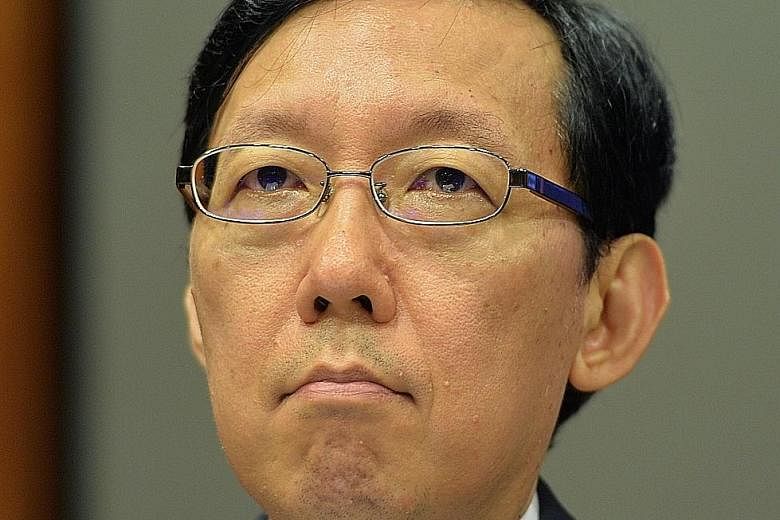A knee-jerk tightening of rules may not be in the best interest of the market, as stricter across-the-board regulations can impose additional costs on all listed companies, said Monetary Authority of Singapore (MAS) deputy managing director Ong Chong Tee yesterday.
Mr Ong, who was the guest of honour at the Singapore Governance & Transparency Forum 2018, was speaking on the same day that the MAS announced it had accepted a panel's recommendations to encourage board renewal and diversity, as well as strengthen director independence.
The Singapore Exchange had also said it would amend listing rules to reflect the recommendations.
Mr Ong said: "These costs must be weighed against the benefits. It may not be appropriate to prescribe the same standard on all companies, as they can differ in size or business complexity.
" The MAS has therefore been deliberate in calibrating our rules. For example, there are more stringent corporate governance (CG) standards for banks, compared to for other listed companies, and rightly so due to banks' potential systemic impact.
"This is also why in the latest review of the code, the council took a pragmatic approach. Important baseline market practices that should apply to every firm - or CG 'hygiene' requirements - are hardened by their inclusion in the SGX Listing Rules. Indeed, 12 basic requirements previously couched as guidelines have been shifted from the code to the Listing Rules. In other aspects, the code has been streamlined and elaborated in the practice guidance."
In his speech, Mr Ong pointed out that companies that fall short in their CG practices will hurt investor confidence, and failings in larger institutions can undermine system-wide financial stability.
There have been recent public commentaries on companies flagged for corporate transgressions and calls for more forceful regulatory actions.
"So each time a corporate failing of one form or another happens, both the MAS and the SGX would review and investigate the matter. The specific regulatory response would obviously depend on the facts and circumstances of each case.
"There may be some concerns that some of the principles in the code are subject to interpretation and gaming. I can understand such sentiments. This is why the MAS has also accepted the (Corporate Governance Council's) recommendation to set up a standing Corporate Governance Advisory Committee to monitor CG developments on a regular basis," he said.
Singapore's most well-governed and transparent listed companies were also unveiled yesterday, with Singtel topping the annual Singapore Governance and Transparency Index (SGTI) ranking in the general category for the fourth consecutive year.
DBS Group was second while CapitaLand and Singapore Exchange tied at third position. United Overseas Bank made it to the top 10 at eighth place for the first time, while Singapore Press Holdings placed ninth after an eight-year hiatus in the top 10.
In the Reit (real estate investment trust) and business trust category, CapitaLand Mall Trust and CapitaLand Commercial Trust took the top two positions, while Ascott Residence Trust ranked third.
This year's index ranked a total of 589 Singapore-listed companies and 43 Reits and business trusts. The SGTI assesses them on their corporate governance disclosure and practices, as well as the timeliness, accessibility and transparency of their financial results announcements.


